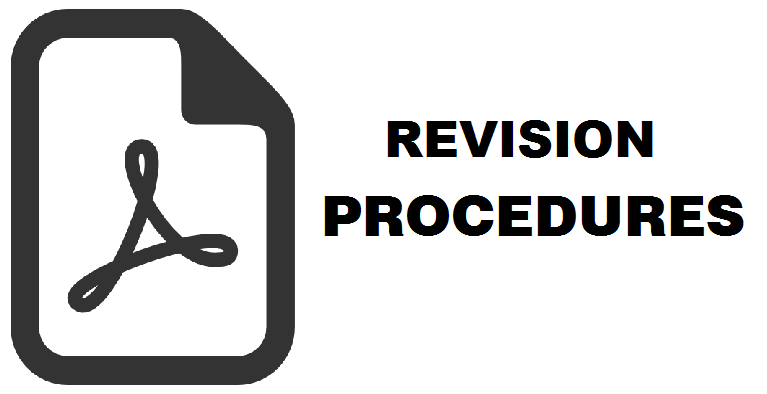Dampak Perubahan Penggunaan Lahan terhadap Perubahan Runoff di Daerah Aliran Sungai (DAS) Bedog Yogyakarta
Sanggara Yudha(1*), Sudibyakto Sudibyakto(2), Suprapto Dibyosaputro(3)
(1) Balai Konservasi Sumber Daya Alam Jawa Barat, Bandung
(2) Fakultas Geografi, Universitas Gadjah Mada, Yogyakarta
(3) Fakultas Geografi, Universitas Gadjah Mada, Yogyakarta
(*) Corresponding Author
Abstract
ABSTRAK DAS Bedog merupakan salah satu DAS di Yogyakarta yang daerah aliran sungainya mengalami proses pengembangan wilayah perkotaan. Proses perkembangan wilayah perkotaan di DAS Bedog ini terjadi dalam kurun waktu 10 tahun terakhir. Parameter dari adanya proses pengembangan wilayah perkotaan di DAS Bedog adalah terjadinya peningkatan peningkatan tipe penggunaan lahan “permukiman”, yang semula sebesar 15,29% di tahun 2004 menjadi 16,94% tahun 2008 dan 17,72% pada tahun 2010 atau meningkat sebesar 0,4% per tahun.Tujuan utama dari penelitian ini adalah menganalisis dampak perubahan penggunaan lahan terhadap perubahan runoff dan merumuskan simulasi/skenario penggunaan lahan dalam menurunkan runoff di DAS Bedog menggunakan metode Curve Number-USSCS (CN-USSCS). Berdasarkan perhitungan metode CN-USSCS pada tahun 2004, 2008 dan 2010, akibat dampak dari perubahan penggunaan lahan menghasilkan ketebalan runoff sebesar 1.353,0 mm (66% dari jumlah hujan/tahun), 1.277,2 mm (55,5% dari jumlah hujan/tahun), dan 1.536,4 mm (57,6% dari jumlah hujan/tahun). Penggunaan lahan “permukiman” dan “lahan kosong” berkontribusi terbesar dalam peningkatan ketebalan runoff di DAS Bedog, dikarenakan memiliki nilai CN yang tinggi dan berarea luas.Validasi terhadap metode CN-USSCS menggunakan uji statistik, T-test dihasilkan nilai T-test sebesar 0,00 dan 0,092 dibawah nilai T-tabel sebesar 1,67 dan 1,71 serta nilai koefisien determinasi (R2) diatas 0,5 yang berarti metode CN-USSCS dapat diterapkan di DAS Bedog untuk memprediksi ketebalan runoff.Hasil rumusan skenario perubahan penggunaan lahan di DAS Bedog bahwa perubahan penggunaan lahan untuk 6 tahun ke depan (tahun 2016) mengalami perubahan ketebalan runoff sebesar 4% dari tahun 2010 (skenario 1). Penurunan ketebalan runoff di DAS Bedog dapat dilakukan dengan peningkatan luasan hutan berupa kebun campuran dan tumbuhan perdu (semak belukar) di daerah Bantul sebesar > 50% dari luas DAS Bedog (skenario 4).
ABSTRACT Bedog watershed is one of the watersheds in the area of Yogyakarta through the process of urban development. The process of urban development in the Bedog watershed this happened in the past 10 years. The parameters of the process of urban development in the Bedog watershed is the increase in land use "settlement" from 15,29% (2004) to 16,94% (2008) and 17,72% in 2010 or an increase of 0.4% per year.The main objective of this research is is to analyze the impact of land use change on runoff and formulate of the simulation / scenarios of land use in reducing runoff in the Bedog watershed using the Curve Number -USSCS (CN-USSCS). Based on the calculation of CN-USSCS in 2004, 2008 and 2010, due to the impact of changes in land use resulted runoff of 1353.0 mm (66% of the amount of rain / year), 1277.2 mm (55.5% of the amount of rain / year), and 1536, 4 mm (57.6% of the amount of rain / year). Settlement and Bareland contributed to the greatest increase in runoff in the Bedog watershed, due to having a high value of CN and has a large area.Validation of the methods of CN-USSCS using statistical test, T-test produced values of 0.00 and 0.092 below the T-table values of 1.67 and 1.71, and the coefficient of determination (R2) above 0.5, which means CN-USSCS method can be applied in the Bedog watershed to predict the runoff.The results of the formulation of land use change scenarios in Bedog watershed that the change in land use for the next 6 years ( 2016) to change the runoff by 4% from the 2010 (scenario 1). Decrease runoff in the Bedog watershed to do with the increase in forest area in the form of mixed garden and herba plants (shrubs) in Bantul for >50% of the total Bedog watershed (scenario 4).
Keywords
Full Text:
PDF (Bahasa Indonesia)Article Metrics
Refbacks
- There are currently no refbacks.
Copyright (c) 2016 Majalah Geografi Indonesia

This work is licensed under a Creative Commons Attribution-ShareAlike 4.0 International License.
Volume 35 No 2 the Year 2021 for Volume 39 No 1 the Year 2025
ISSN 0215-1790 (print) ISSN 2540-945X (online)








